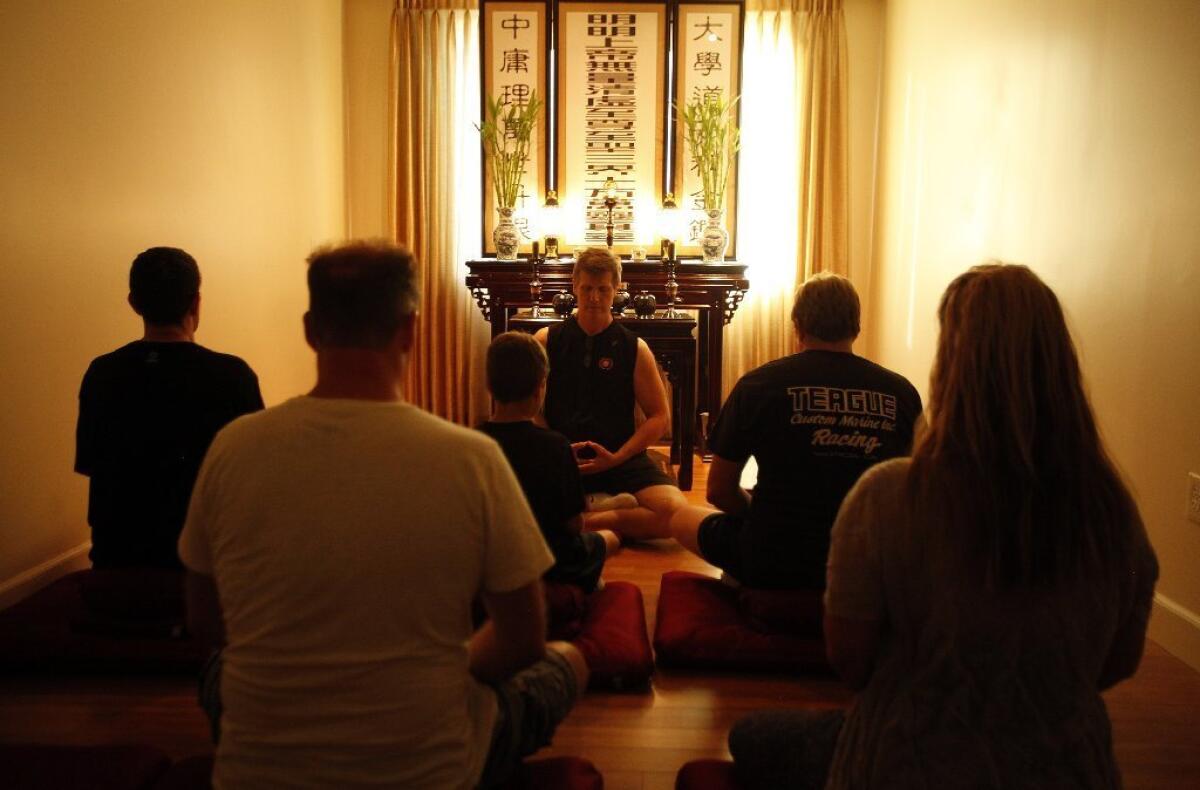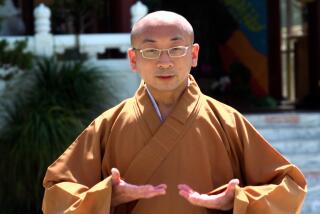Meditating might help older people sleep, researchers say

- Share via
Older people who have sleep problems found more relief from a mindful meditation program than from a conventional sleep education program, researchers reported.
In another study, researchers found that meditation -- at least for people who did it for years -- may slow age-related loss of the brain’s gray matter.
In the sleep study, published this month in the Journal of the American Medical Assn. Internal Medicine, scientists used 49 people in Los Angeles 55 and older who had expressed moderate sleep complaints. They were split into two groups, one of which was taught to meditate and the other given behavioral sleep education. The meditators slept better and had better results in related issues such as depression, based on results of a standard measure of sleep quality. But the researchers said more work was needed to determine whether meditation is a long-term solution to sleep problems.
Sleep problems, the study noted, are common among older people, and those complaints often go untreated.
Previous research has shown that the movement-based meditation called Tai Chi can help with the quality of older people’s sleep. The form used in the current study is mindfulness meditation, which is characterized by paying attention to the moment, “and not judging your thoughts or observations,” said the senior researcher, Dr. Michael Irwin, a UCLA psychiatry professor and director of the Cousins Center for Psychoneuroimmunology at the Semel Institute. UCLA and USC collaborated on the research.
The participants used a meditation program from UCLA’s Mindful Awareness Research Center, taught by a teacher with more than 20 years of experience. The program is available to the public. The second group spent as much time in their education program.
David Black, assistant professor of preventive medicine at Keck School of Medicine at USC and the director of the American Mindfulness Research Assn., plans to look at the effects of combining the two methods on sleep.
Mindfulness, the researchers wrote, is believed to function on brain processes that mediate the relationship between perception of things and ideas and appraisal of them.
In the second study, researchers from UCLA reported in the journal Frontiers in Psychology that meditation appears to help preserve the gray matter in the brain. They compared 50 people who had meditated for an average of 20 years with 50 who did not.
Meditation did not halt the loss of gray matter, they said.
“We expected rather small and distinct effects,” said co-author Dr. Florian Kurth. “Instead what we actually observed as a widespread effect of meditation that encompassed regions throughout the entire brain.”
The researchers said they could not draw a cause and effect relationship because so many other factors affect the brain over time, including genes and other lifestyle factors.







